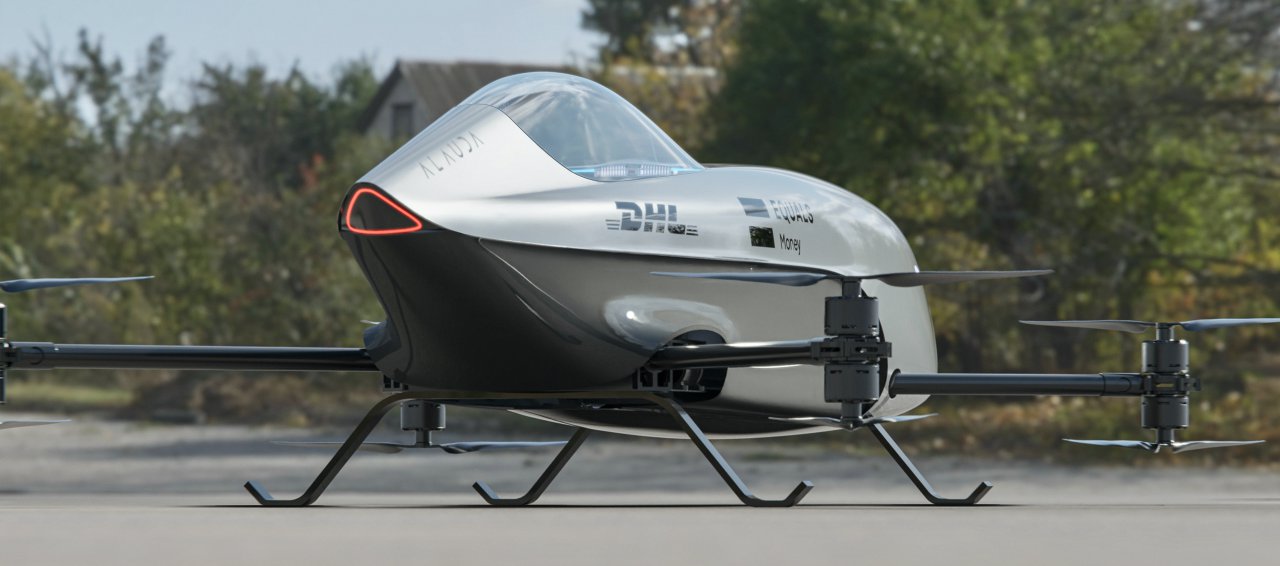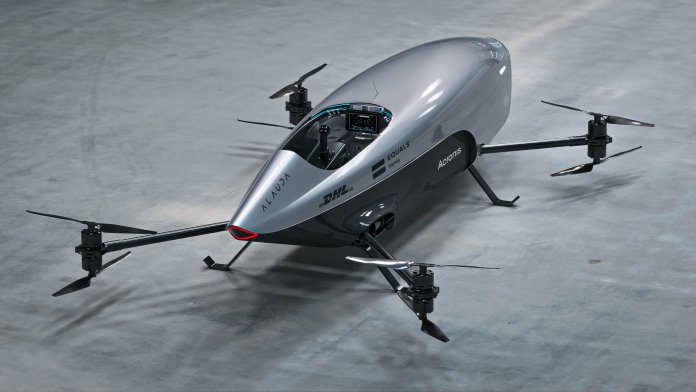It was at the Goodwood Festival of Speed in 2019 that an Australia company announced what it said would be the world’s first flying electric racing car. There was an update a few months later and now Alauda has unveiled its Airspeeder, which it says will be racing yet this year.
“The unveiling of the world’s first full-sized electric flying racing car is a landmark moment in the dawn of a new mobility revolution,” proclaimed Matthew Pearson, Alauda Aeronautic founder. “It is competition that drives progress and our racing series is hastening the arrival of technology that will transform clean-air passenger transport, logistics and even advanced air mobility for medical applications.
“The world’s first electric flying car races will take place this year and will be the most exciting and progressive motorsport on the planet.”
Plans call for the Airspeeder Mk3 to be flown by remote pilots at speeds up to 120 km/h (75 mph) in the inaugural flying car racing series. The Mk3 features vertical take-off and landing capabilities and if all goes will with the remotely piloted preliminaries, plans call for manned vehicles — Mk4 — to be racing in 2022.
“A full grid of Mk3 electric flying race-craft is currently being manufactured at Airspeeder and Alauda’s technical HQ in Adelaide, South Australia,” the company said. “More than 10 identical racing vehicles will be produced and supplied to teams in 2021.”
“Racing will play a vital role in hastening the arrival of eVTOL technologies which promise to revolutionize urban passenger mobility, logistics and even remote medical transport,” the company said. “Both the remotely piloted Mk3 program and manned Airspeeder Mk4 flying cars will provide a safe environment from where key innovations around safety, noise and batteries can be refined and fed into the wider development of an industry predicted by Morgan Stanley to be worth $1.5 trillion by 2050.”
Alauda said Airspeeder races will feature pit stops with battery changes.


“Airspeeder is built on the philosophy that nothing accelerates technical progress like sporting competition,” the company added. “The next generation sport plays the same role the pioneers of Formula One did nearly a century ago in driving technical development and building public acceptance for a new mobility revolution. The eVTOL sector is primed to transform urban aerial transport, global logistics and even remote medical transport with a clean-air, zero-emissions aerial-transport solution.”
For more information, visit the Airspeeder website.






These things look dangerous. No protection around the high speed rotors.
If “looking dangerous” is a legit reason to stop tech progress, let’s all become Amish and certainly get rid of electricity, any powered land transportation, all aircraft, all boats… Hey- let’s do the Matrix and “live” in perfectly safe pods! Horses are dangerous, too, donchakno.